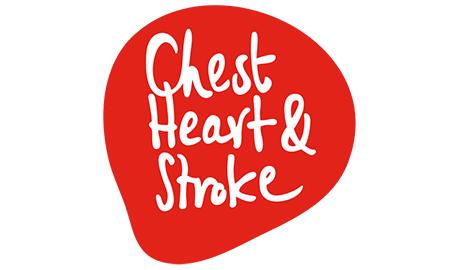Is Your Number Up?
Heart Health1 in 2 heart attacks & strokes are linked to high blood pressure.
Check your blood pressure to know your numbers.
This Autumn, we are running our new blood pressure campaign to raise awareness of untreated high blood pressure, which is often known as The Silent Killer.
High blood pressure often has no visible signs or symptoms. It is therefore important to get your blood pressure checked, get treatment if necessary, and change your lifestyle if your blood pressure numbers are high.
Keep reading to find out more about high blood pressure and how you can get yours checked to find out if your number's up.
What is High Blood Pressure?
If your blood pressure is consistently higher than 140/90mmHg then you may have high blood pressure. High blood pressure is not a disease in itself. However, it can lead to an increased risk of heart disease and strokes.
High blood pressure puts pressure on your heart, making it work harder. Over the years untreated high blood pressure slowly damages the blood vessels by making them narrower and more rigid. It can also cause small tears and damage to the insides of the blood vessels.
As your blood vessels become more damaged and rigid, your heart has to work even harder to push the blood through your blood vessels and the overall blood pressure rises further. It becomes easier for clots to get caught and for fatty debris (atheroma) to block your blood vessels.
This can result in clots that may travel to the heart or brain and cause a heart attack or stroke. Failure to detect and treat high blood pressure can lead to heart attack, heart failure or stroke and other conditions like dementia.
Keeping an eye on your Blood Pressure
High blood pressure rarely has any symptoms. The only way to know your blood pressure (BP) is to have it measured. High blood pressure is more common as you get older so it is important to get it checked regularly. It is recommended that you have your blood pressure checked at least every 5 years, however, if you are at greater risk due to factors such as a family history with high blood pressure, you may wish to get it checked more regularly.
People with type 2 diabetes should have their blood pressure checked annually.
Top Tips for a Healthy Blood Pressure
Maintaining a healthy blood pressure will help reduce your risk of heart and circulatory disease. There are several changes you can make to your lifestyle to reduce high blood pressure and to maintain a healthy blood pressure:
- Reduce Salt Intake - Adults should eat no more than 6g of salt a day (approx. a teaspoonful). Read the labels on food packaging, choose foods lower in salt and try replacing salt with pepper, herbs and spices to add flavour.
- Be More Active - Move more and sit less! Adults should aim for at least 150 minutes of moderate intensity or 75 minutes of vigorous intensity physical activity each week. 2 days of strengthening exercises should also be included.
- Maintain a Healthy Weight - Being overweight means your heart must work harder to do everyday tasks- this leads to high blood pressure. Maintaining a healthy weight involves a combination of eating a healthy diet and being more physically active.
- Limit Alcohol Intake - Drinking too much alcohol increases the risk of high blood pressure and can cause weight gain. We should drink no more than 14 units of alcohol per week, with several alcohol-free days. Men should have no more than 8 units and women no more than 6 units of alcohol per session.
- Increase Fruit and Vegetable Consumption - Fruit and vegetables contain vitamins and minerals, along with fibre which help to reduce the risk of high blood pressure and improve our heart health. We should aim for 5 portions a day which can be fresh, frozen, canned, dried or juiced.
6 out of 10 strokes could be prevented by managing high blood pressure and leading a healthy lifestyle.
If you have been diagnosed with high blood pressure, you should also take medication for high blood pressure as prescribed by your doctor or health professional in addition to making changes to your lifestyle, unless your health professional is happy for you to stop your medication. If you are on blood pressure medication, you should go for an annual blood pressure check to review your medication.






























































